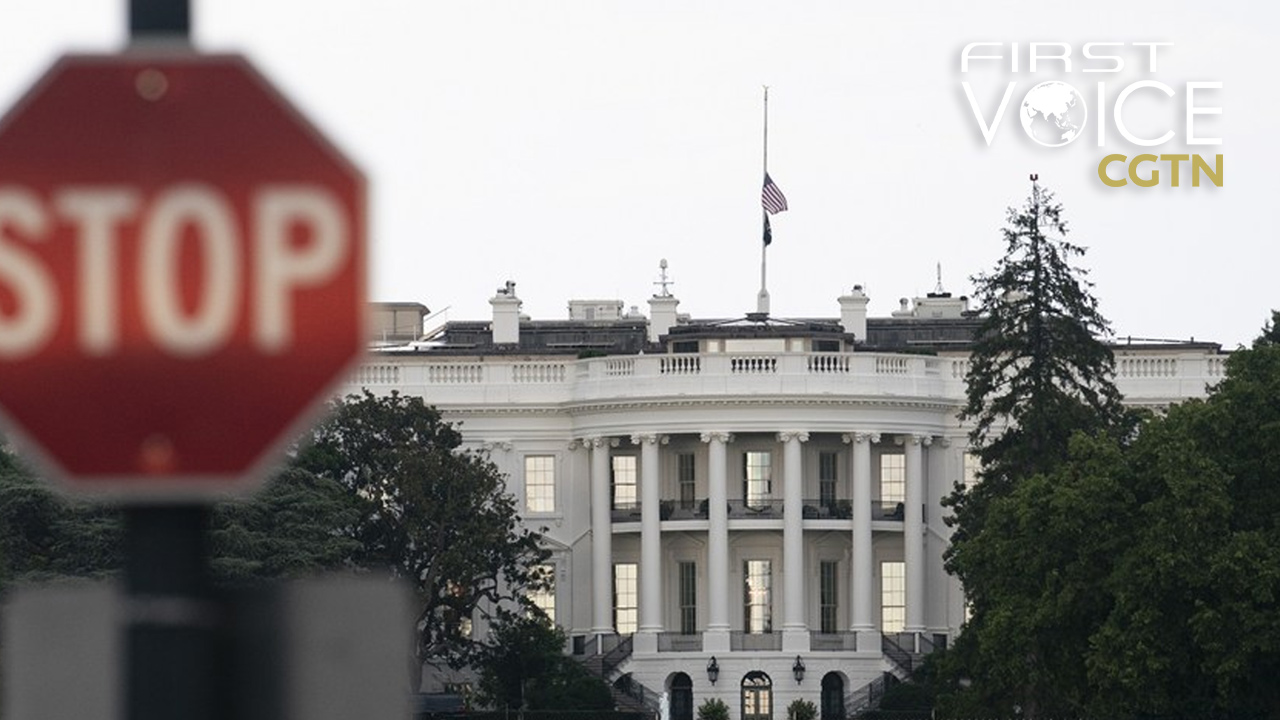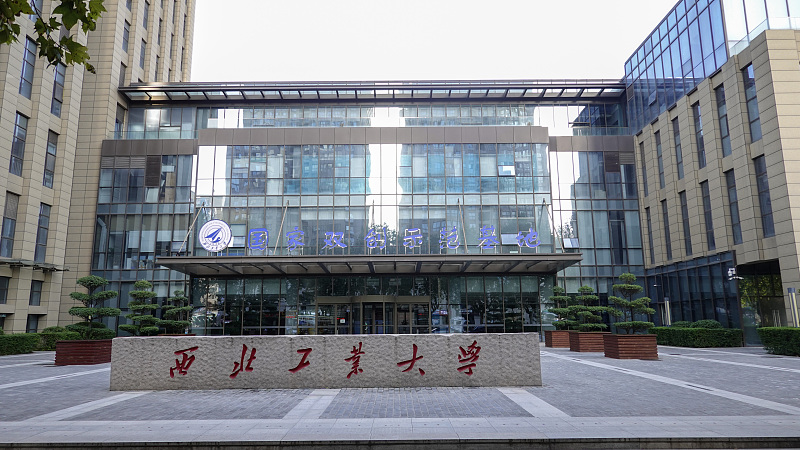
Photo taken of the White House and stop sign in Washington, D.C., United States, August 4, 2022. /Xinhua
Photo taken of the White House and stop sign in Washington, D.C., United States, August 4, 2022. /Xinhua
Editor's note: CGTN's First Voice provides instant commentary on breaking stories. The column clarifies emerging issues and better defines the news agenda, offering a Chinese perspective on the latest global events. This First Voice article is written by CGTN Special Commentator Danny Haiphong, an independent journalist and researcher in the United States. He is a contributing editor to the Black Agenda Report, co-editor of Friends of Socialist China and founding member of the No Cold War international campaign. The article reflects the author's opinions and not necessarily the views of CGTN.
U.S. political leaders and media analysts often hype "threats" from abroad in order to justify an increasingly aggressive foreign policy. China is now considered a top "threat" from significant elements of the U.S. political establishment and is regularly accused of conducting cyber espionage and other forms of snooping. Often, these accusations reflect the actual policies carried out by the U.S. government regardless of which political party holds majority power. On May 4, China's National Computer Virus Emergency Response Center (NCVERC) and internet security company 360 offered verifiable proof of this in a joint report detailing the cyber weapons used by the U.S.' Central Intelligence Agency (CIA) on other countries.
The report builds on earlier findings in 2020 that an unknown cyber organization hacked into China's major petroleum, infrastructure, aviation, and several other industries using methods related to WikiLeaks' "Vault 7" documents. These documents revealed that the CIA was able to infiltrate cyber technology and use it to spy on other countries as well as U.S. citizens.
The latest joint report found many instances where U.S. cyber warfare presented clear and present danger to other nations and the privacy of people. Investigators in the report detailed, for example, the CIA's use of a cyber attack toolkit that infiltrated smart TVs and turned them into spy tools even as the devices appear to be "off." Also, the CIA was found to wield malware programs and other cyber networks that allow the agency to spy on virtually any country at any time.
The CIA and National Security Agency (NSA) have conducted numerous cyber-attacks on China over the past several years as part of the U.S.' Cold War containment strategy. Not only is the CIA connected to the theft of information from Chinese companies but the NSA was also found to have stolen the private information of staff and researchers at the Northwestern Polytechnical University in 2022. It should come as no surprise, then, that China's latest joint report found that the NSA and CIA regularly share information and technology in their cyber war efforts. The CIA alone has more than 5,000 hackers and at least 1,000 hacking systems within its Center for Cyber Intelligence.

Northwestern Polytechnical University, Shaanxi Province, China, September 5, 2022. /CFP
Northwestern Polytechnical University, Shaanxi Province, China, September 5, 2022. /CFP
China is certainly not the only case where the U.S. has used cyber warfare to sabotage and spy on other countries. In 2014, famed whistleblower Edward Snowden told the media that NSA infiltration of Syria's internet system caused a nation-wide blackout early in the conflict. In 2019, the U.S. Cyber Command conducted a cyber attack on an Iranian intelligence group in an attempt to shut down the Islamic Republic's weapons systems. The U.S. has also admitted to launching cyberattacks on the side of Ukraine in its ongoing conflict with Russia.
As China's report notes, cyber attacks are just one form of warfare employed by the U.S. against other countries. The U.S. has attempted the overthrow of more than 50 governments since the end of World War II. While much of the world has been aware of the U.S. role in destabilizing Iraq and Afghanistan, the CIA and the U.S. military-intelligence industrial complex have been involved in dozens of regime change operations around the world. CIA and Pentagon assistance to anti-government forces in Libya and Syria in 2011 and Ukraine in 2014 directly led to the death and displacement of millions of people. U.S. economic sanctions on Iran, Venezuela, and dozens of other countries have caused the preventable death and impoverishment of millions more.
Incessant attempts from the U.S. mainstream media and political establishment have been made to paint U.S. foreign policy as "democracy" at work. But, it's clear that U.S. aggression is geared toward securing unchallenged hegemony over other nations at the expense of democracy worldwide. The principles of the UN Charter and international law more generally are disregarded entirely.
In fact, U.S. foreign policy analysts and officials frequently champion the U.S. as the sole arbiter of democracy from which all other countries must follow. Such imperial hubris is justified by a Western ideology of exceptionalism which posits that other nations possess inferior or even more oppressive governance systems and must therefore submit to U.S. domination.
China's report sends a signal to the international community that the U.S. must be held accountable for its actions on the international stage. Though a multi-polar world is inevitable, true peace cannot exist within conditions of impunity. The U.S. has, for far too long, been able to get away with the gravest crimes against humanity without consequences. A new multi-polar order led by China, Russia, and the Global South must therefore possess not only the means to secure prosperity and sovereignty for all but also accountability for global wrongdoing.
(If you want to contribute and have specific expertise, please contact us at opinions@cgtn.com. Follow @thouse_opinions on Twitter to discover the latest commentaries in the CGTN Opinion Section.)